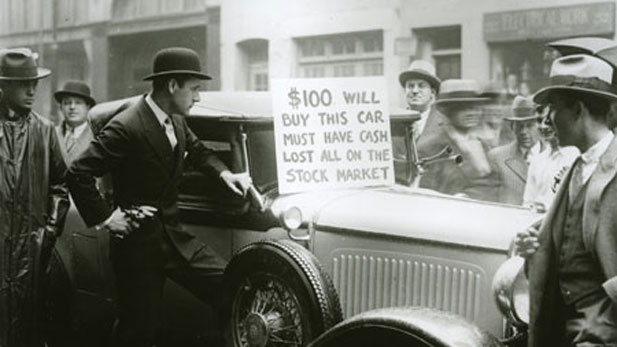
Today, the economic crisis is sparking a familiar fear and sense of despair across America; one fueled by a nationwide credit crunch, a wave of foreclosures, and an extreme downturn in consumer confidence. Seventy-nine years ago, on October 29, 1929, the Dow Jones Industrial Average plummeted, losing more than $14 billion in value in just one day. The crash would lead Americans through sixteen years of economic turmoil, and today remains the biggest financial crisis of the 20th century.
In the “roaring twenties,” while the stock market was rising, there were few critics. It was a “New Era” when everyone could get rich. Leaders of Wall Street such as Charles Mitchell, President of the National City Bank (which would become Citibank), stock specialist Michael Meehan, and Jesse Livermore, a Wall Street insider, found new ways to manipulate the stock market and grew incredibly wealthy, helping create the economic boom of that fabulous decade. Their success made them folk heroes of the day. The upward climb of the market seemed limitless. But in October of 1929, the market plunged downward taking with it the finances of the Wall Street titans and everyday investors alike.
“There are many parallels between today’s situation and the burst of the 1920s economic bubble,” says AMERICAN EXPERIENCE executive producer Mark Samels. “There’s a lot to learn here about the cyclical nature of the economy.”
See previews and find out more at pbs.org
Watch it Tuesday, November 11th 7:00 pm on PBS-World

By submitting your comments, you hereby give AZPM the right to post your comments and potentially use them in any other form of media operated by this institution.